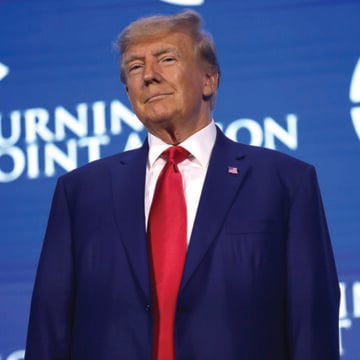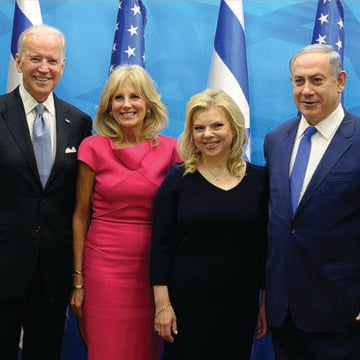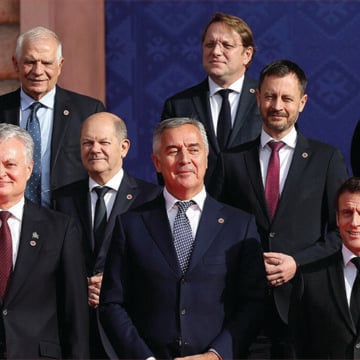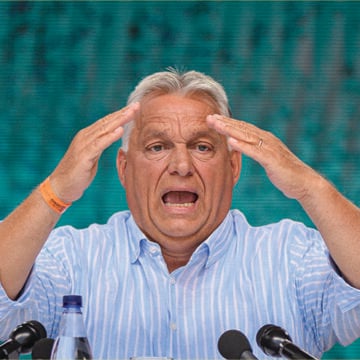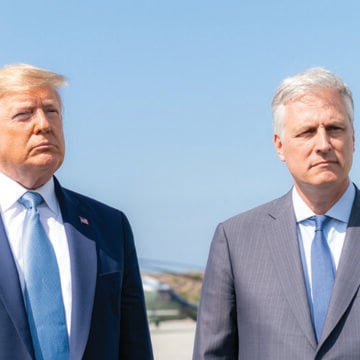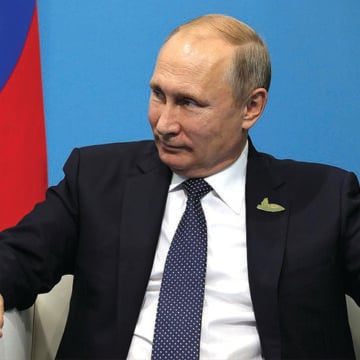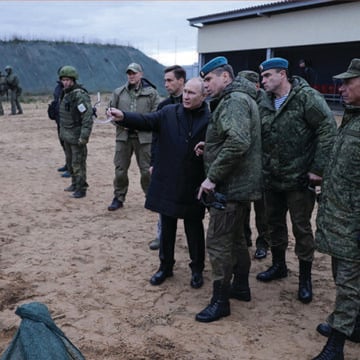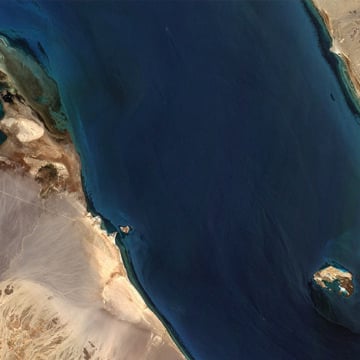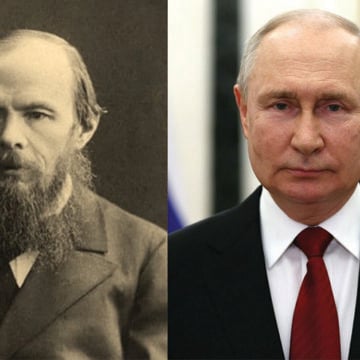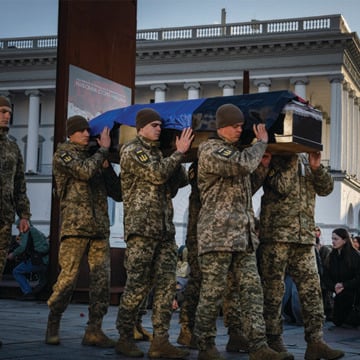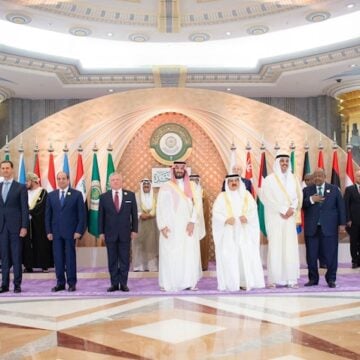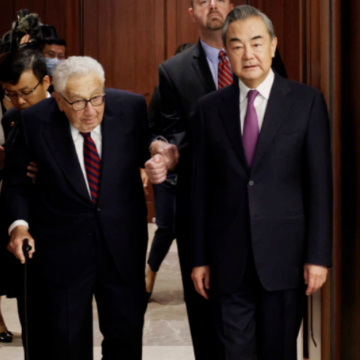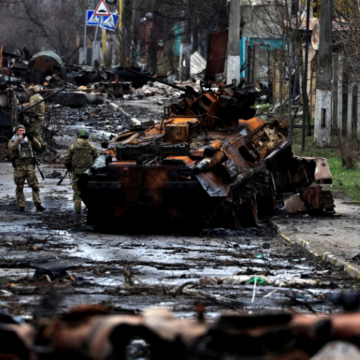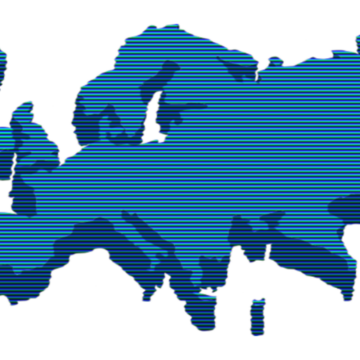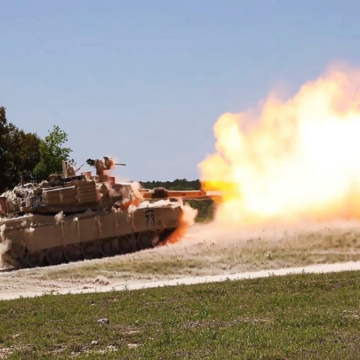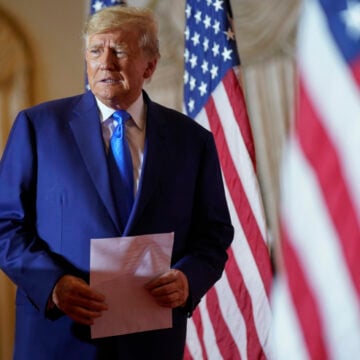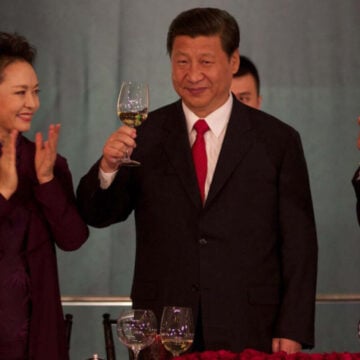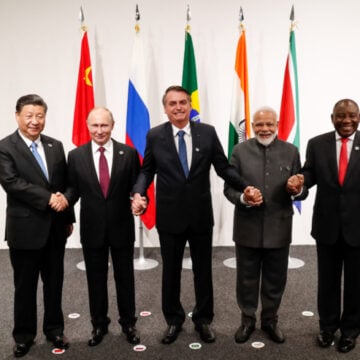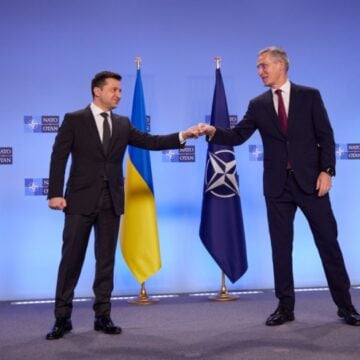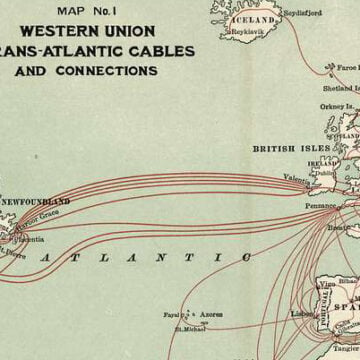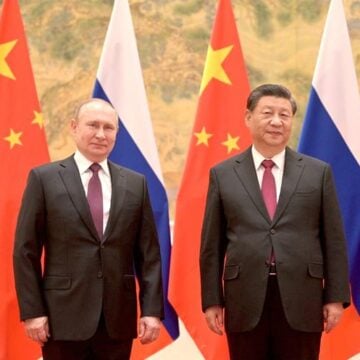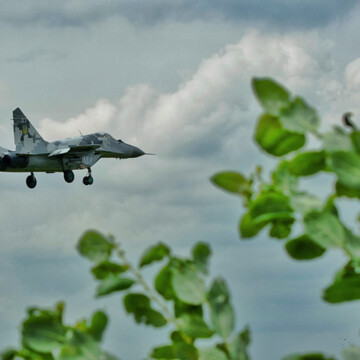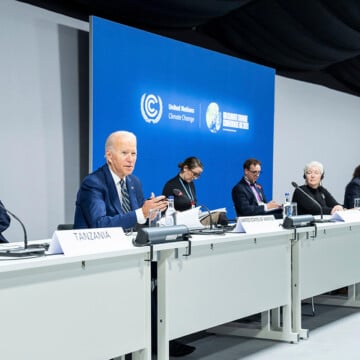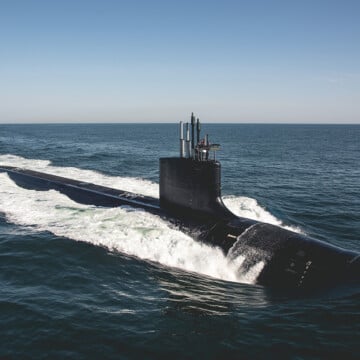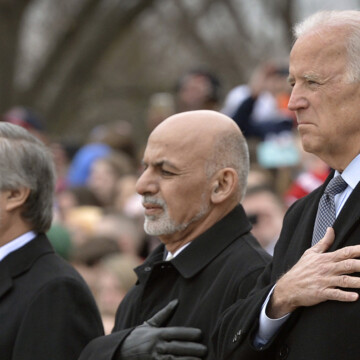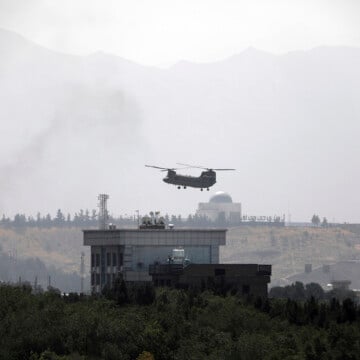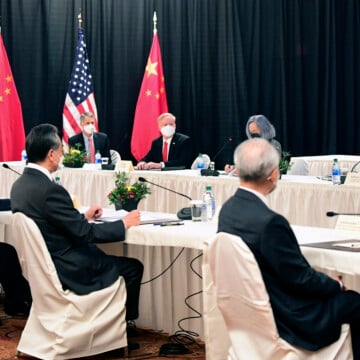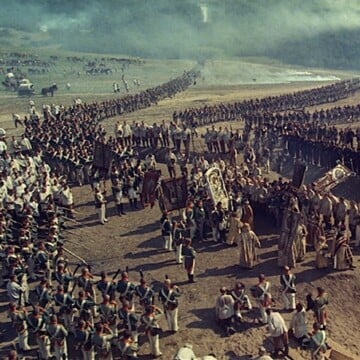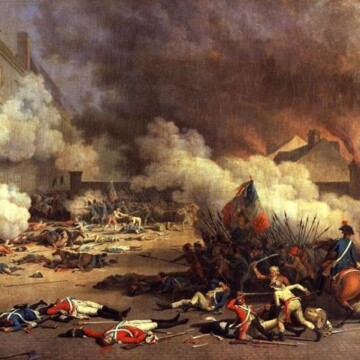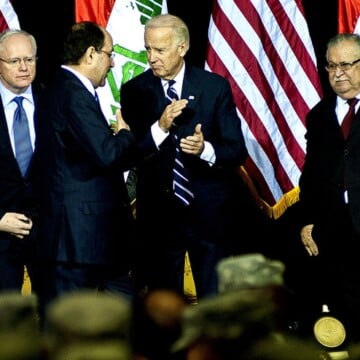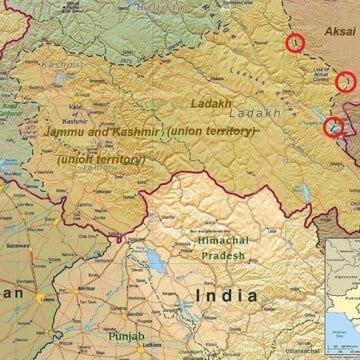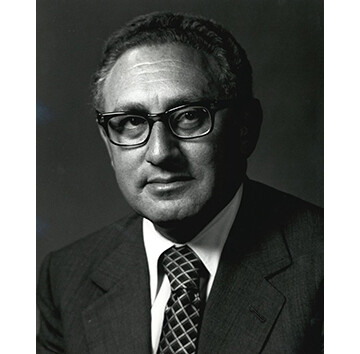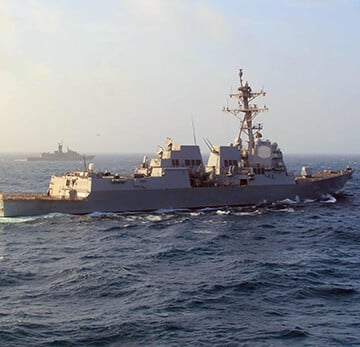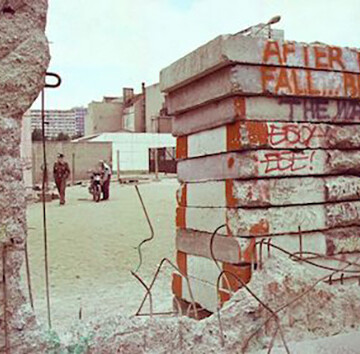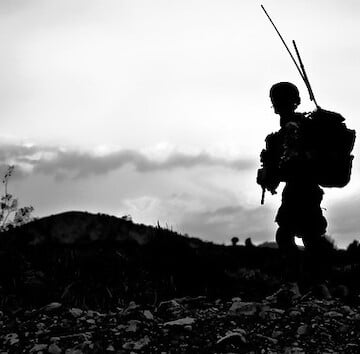It is strange that pundits routinely accuse Trump of being unpredictable on foreign affairs. In fact, during this year’s campaign, he has made a series of statements related to the pressing global issues which are fairly clear and reasonable.
A Realist’s Reassessment of America’s Alliance with Israel
Washington should recognize that Israel has interests different from those of the U.S. Such an honest reckoning would help both parties define their interests and long-term strategies.
The West’s Fraudulent Democracies
Western elites consider transgenderist ideology and mass immigration foundational to democracy, while in truth they are destructive of all things democratic.
The Laboratory of the Apocalypse
America’s “collective West” is plagued with serious neuroses. Hungarian Prime Minister Viktor Orbán recently provided a compelling summary.
Neocon Pitfalls for Trump 2.0
Former Trump advisor Robert C. O’Brien began campaigning for a spot in the next Trump admin by penning an unhinged neocon manifesto. Unfortunately, O’Brien may soon find his way into the second Trump admin.
Citizenship Degraded
The traitor class seeks to destroy distinct communities by degrading and devaluing citizenship. They want the whole world to share their death wish.
Wars, Rumors, and Geopolitical Logic
When nations put ideology before real-world geopolitics in formulating grand strategy they embark upon a sure path to failure.
War in Ukraine, Two Years Later
The war in Ukraine reflects an ongoing revolution in military affairs that started two decades ago but which needed a major conflict to become fully apparent. To put it in a nutshell, the battlefield pendulum has swung in favor of defense
The Struggle for the Gate of Tears
Houthi attacks on Israeli allied vessels in the Bab-el-Mandeb Strait are disrupting the world economy and prompting the U.S. to intervene. Known as "The Gate of Tears," this strait is the gateway for much of the world's commerce.
Dostoevsky, Putin, and the Russian Soul
The writings of Fyodor Dostoevsky provide a window into the soul of Russia and the soul of Vladimir Putin. His writings are Russia's national consciousness put to paper.
Living in Interesting Times
The public discourse in both hemispheres seems to be legitimizing the coming of World War III. These are interesting—if not terrifying—times.
The New Middle East Strategic Landscape
Without U.S. engagement the Middle East is assuming peace and stability as a new balance of power quickly develops.
Kissinger in China
Henry Kissinger’s fears and misgivings about the future of U.S.-Chinese relations may prove just as prophetic as George Kennan's warnings about Russia and NATO expansion.
The Russian Conundrum
It is in the American interest to avoid the risk of direct intervention in Ukraine regardless of the course of the war because neither the security nor the prosperity of the United States depends upon its outcome.
Blinken, the Posthuman Diplomat
Antony Blinken is an inherently corrupt Washington insider: he is an ideologue who seeks permanent cultural revolution at home and the imposition of its fruits abroad.
Russia Blues
The Ukrainian campaign is not just the fight to retain strategic depth along Russia’s vulnerable southwestern flank; it is also the struggle to retain its status as a great power. The Biden administration is now more than ready for reckless escalation, a deadly game of chicken with nuclear stakes. The future is dark.
Europe Diminished
The foreign policy consensus between Europe and the U.S. leads only to unnecessary new wars abroad and to the suicide pact of multiculturalism at home.
Uncertain Endgame in Ukraine
The war in Ukraine was started by Russia, but it was willed, engineered and choreographed by the U.S.-led West. It is both a mistake and a crime, a minus-sum game for the declining European remnant.
Modi and the Art of Realpolitik
India's Prime Minister Narendra Modi is an unabashed realist who has been using the crisis between Russia and the collective West to increase his country’s global clout.
Trumpism: The Myth, the Man, and the Mandate
Trump and the movement he started have suffered from inconsistent objectives and dubious accomplishments. It is increasingly hard to believe that his comeback campaign can succeed.
Emperor Xi of the CCP
China's 20th National Congress of the CCP brought two novelties: a new emphasis on military strength and the complete consolidation of power into the hands of President Xi Jinping.
A World Poised Between Orders
The realignment of global forces resulting from the war in Ukraine is certain to confront American hegemony and to undermine the status of the U.S. dollar as the world’s reserve currency.
NATO’s Road to Perdition
NATO's recent Madrid Summit reveals a hardening, monolithic West that is likely soon to be challenged by a rising China and a multipolar world.
A Fork in Europe’s Road
European leaders have a decision to make: treat Russia as an integral part of Europe with legitimate security concerns, or treat her as an Asiatic pariah to be crippled.
Allies on the Transatlantic Right
Conservative nationalists in Europe face the same uphill struggle against the dominant left as do their American counterparts.
A Ukrainian Tragedy
Having designated a traditionalist, conservative, overwhelmingly Christian Orthodox Russia as the enemy, the rulers of an Orwellian "Great Reset" West will be free to cancel conservatives of all stripes even more radically than before.
Middle Kingdom Rising
In 1935 the Nazi regime was two years old, fully consolidated at home, and increasingly assertive abroad. It enacted the anti-Semitic Nuremberg Laws and announced that Germany would start a massive rearmament program, in violation of the Treaty of Versailles. Meanwhile, Britain and France were focused on condemning Mussolini’s intervention in Ethiopia and on punishing...
The Madness of Russophobia
“Rule One, on page one of the book of war, is: ‘Do not march on Moscow,’” Field Marshal Bernard Montgomery told the House of Lords in 1962. “Various people have tried it, Napoleon and Hitler, and it is no good.” The victor of El Alamein made an understatement. Napoleon’s invasion in June 1812 took...
Global Hot Spots in 2022
Today’s commentariat is prone to ignore history, or to simplify past events to make them fit their current ideological preferences. The discourse of regime-approved conservative intellectuals and their mass media cohorts—such as Victor Davis Hanson and the tedious George Will—remains liberally optimistic and upwardly linear. The notion that our civilization is on a downward course...
Sinking Deals, Shifting Alliances
The tectonic change in the Indo-Pacific region is the most important geopolitical event of 2021. The countries along its shores account for roughly two-thirds of the world’s population. They produce the largest share of global gross domestic product, possess the most powerful military forces, and depend on the world’s busiest shipping lanes. It is also...
In Afghanistan, America Failed to Know Its Enemy and Itself
The latest episode in an ironic reversal of the roles of the foreign powers that have tried their luck in Afghanistan is unfolding before our eyes. Britain’s profitless involvement (1839-1919) is ancient history, but more recently the Soviet intervention (1979-1989) and America’s subsequent “longest war” (2001-2021) have both ended in strategic failures. Because the United...
Jihad Undefeated
Events are the building blocks of history. Narrative historians, starting with Thucydides, have focused on what they regarded as significant occurrences in order to present and evaluate the past. The import of some events can be recognized by astute observers almost as soon as they occur. Edmund Burke’s 1790 Reflections on the Revolution in...
The Key to America’s Pathologies
Behemoth and Leviathan, the biblical chaos-monsters, are how Carl Schmitt described terra firma and the oceans in his 1942 masterpiece Land and Sea: A World-Historical Meditation. World history, he noted, is composed of land and sea powers warring against each other. Schmitt was not the first to note this phenomenon. It has been well-documented since...
A Tale of Two Europes
April 18 marked the 70th anniversary of the signing of the Treaty of Paris, which established the European Coal and Steel Community. The leaders of France, West Germany, Italy, and the three Benelux countries thus laid the foundation for European integration. It was primarily meant to facilitate economic recovery, but also to help overcome old...
America’s Dangerous Overreach
All recorded history can be viewed as a long record of the use of force, or threats of force, in relations between human communities. This applies to all epochs, civilizations, and geographic spaces. Violence is immanent to man. Its constant presence is indicative of the immutability of his nature, regardless of the cultural context or...
Avoiding War With Russia
The Biden regime’s frantic moves in recent weeks to escalate tensions with Russia—at a time of China’s continued economic and military rise—are irrational, inexplicable by any standard method of foreign policy analysis, and perilous to this country’s security interests. Mr. Biden’s decision less than two weeks after his inauguration to move B-1 bombers to Norway “to...
The Woke-Enabling Act
In the first week of September 1792 the French Revolution entered its openly terroristic phase with the massacre of some 1,600 prisoners in Paris. It was an outrage euphemistically called les Journées du Septembre (or the September Days). It was justified by the claim that the country was in danger from foreign enemies and domestic...
Biden’s Would-Be Globalist Foreign Policy
People are policy and Joe Biden has 2,000 of them. That is, according to reporting in Foreign Policy magazine that his team of foreign policy and national security advisors has swelled to more than that number. A contingent of that size could be expected to produce a torrent of interesting ideas and fresh proposals, from the fundamentals of...
India, China, and U.S. Pacific Strategy
A major border clash took place between Indian and Chinese troops mid-June in the Western Himalayan region of Ladakh, on the disputed “Line of Actual Control” dividing the two Asian giants. Twenty Indian soldiers died, including a senior officer, and there were 43 reported casualties on the Chinese side. This was the bloodiest in a series...
Managing Rivalry With China
The United States finds itself at a geostrategic crossroads. The moment is comparable to the period between the dispatch of George Kennan’s “Long Telegram” from Moscow in February 1946 suggesting a new strategy for relations with the USSR, and the announcement of the Truman Doctrine in March 1947, pledging U.S. political, military, and economic assistance to...
Monocultural Resilience
At the end of the ongoing global melodrama’s first quarter, it seems reasonable to predict that this will be a two-act play with the final curtain coming down in July. It will end as a tragedy, not because the outcome was preordained in a world impervious to human choices, but because men have free will....
The Geopolitics of Coronavirus
“Nothing will ever be the same again!” The cliché is invoked whenever people think they are facing an event of metahistorical significance. Sometimes its use is justified: Sarajevo 1914, the Bolshevik Revolution, Hiroshima, and the fall of the Berlin Wall fit the phrase. More often it is not. Versailles 1919, JFK’s assassination, Neil Armstrong’s “giant...
The Knack of the Non-Deal
An Arab-Israeli peace agreement is like a moderate Syrian rebel or rational leftist: It is possible to visualize, but producing one is daunting. Every attempt has failed. President Donald Trump’s “Peace to Prosperity” plan will be no exception. Hardly the “deal of the century,” it proposes the establishment of a disconnected, truncated Palestinian state with...
Afghan Disinformation
During the Second World War the German High Command issued regular bulletins about the situation on various fronts. They had a triumphalist tone in 1940, when France fell, and in 1941, when it looked like the Red Army would collapse, but the core information remained reliable throughout the war. These Wehr machtberichten adopted a sober...
Purging the Bureaucrats
In his 1968 essay “Bureaucracy and Policy Making,” Dr. Henry Kissinger argued that there was no rationality or consistency in American foreign policymaking. “[A]s the bureaucracy becomes large and complex,” he wrote, “more time is devoted to running its internal management than in divining the purpose which it is supposed to serve.” There is only...
Geostrategic Challenges in 2020
As we approach the last year of this century’s second decade, the United States is still the most powerful state in the world, safe from direct threats by foreign state actors. Two oceans separate America from actual or potential hot spots on other continents, while its neighbors to the north and south are harmless and...
What Remains After the Wall’s Fall
Thirty years after the fall of the Berlin Wall it is not a matter of dispute that the removal of that evil edifice was a good thing. It should be equally uncontentious that its collapse was primarily the result of the Russians themselves trying to overcome the impasse of their tragic 20th-century history. In the...
Out of Afghanistan
President Donald Trump on September 7 abruptly cancelled secret meetings with unnamed Taliban representatives and Afghan President Ashraf Ghani. Citing a deadly bombing in Kabul a few days earlier, Trump also said he was cancelling the talks with the Taliban that started a year ago in Qatar. Those talks focused on four key issues: a...
The Price of Overstretch
“Everything in strategy is very simple,” Carl von Clausewitz wrote almost two centuries ago, “but that does not mean that everything is very easy.” The author of On War said it is easy to chart the course of a war once begun, but “great strength of character, as well as great lucidity and firmness of...
Bibi’s Reelection Nixes Peace Plan
Early legislative elections in Israel on April 9 have not changed the country’s political landscape. Prime Minister Benjamin Netanyahu has been reelected for an unprecedented fourth consecutive term and will soon exceed the late David Ben-Gurion’s record of 13 years and four months in office. His Likud with 35 seats will be supported by several...
